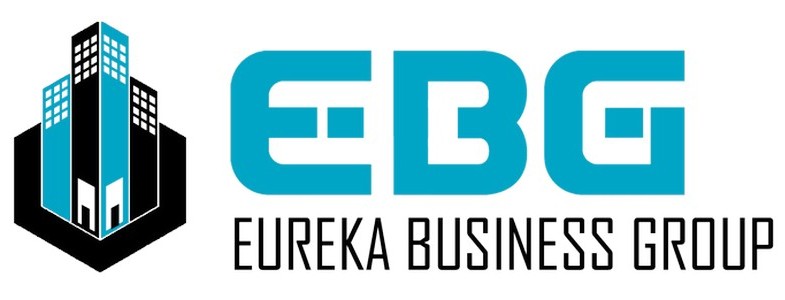- Home
- Retail
- Retail Investors Resources
- Secure Your Future: Renewal Options in Retail Leases
Secure Your Future: Renewal Options in Retail Leases
Why negotiating renewal options upfront is critical to your retail success.
When signing a retail lease, most tenants focus on the immediate priorities—securing the space, what’s the rent, planning the layout, and preparing for opening day. But what about three, five, or ten years from now?
One of the most overlooked yet critical aspects of retail leasing is the renewal option. Without it, you risk losing not just your location but the stability and customer loyalty your business depends on. A well-negotiated renewal clause is your safeguard, offering continuity, cost predictability, and peace of mind.
The Hidden Risk of Overlooking Renewal Options
Imagine this scenario: Your business is thriving. Your customer base has grown loyal to your convenient, well-located store. But as your lease term ends, you realize you don’t have renewal options in your agreement.
The landlord demands a substantial rent increase, well above your budget or worse, decides not to renew your lease at all. Relocation is your only choice. For businesses, moving isn’t just an inconvenience; it can be devastating. You could lose customers accustomed to your current location, face hefty moving expenses, have to renovate and adapt a new space to your business needs and spend valuable time reestablishing yourself in a new community.
Renewal options are your first line of defense against this uncertainty. They grant you the right, not the obligation, to continue your lease under pre-negotiated terms. For tenants with high traffic or location-dependent businesses, this can mean the difference between stability and chaos.
Types of Renewal Options and What They Mean
Not all renewal options are created equal. Understanding the common structures can empower you to negotiate terms that align with your business goals:
1. Fixed Rate Renewals:
This type specifies exact terms for the renewal period, such as a set rental rate or percentage increase. For example:
- Original lease rate: $20/SF, Renewal term: Increase to $22/SF; New rent is now $22/SF.
- Original lease rate: $20 per square foot, Renewal term: $0.55/SF increase; New rent is now $20.55/SF.
- Original lease rate: $20/SF, Renewal term: 4% increase; New rent is now $20.80/SF.
Fixed-rate renewals provide predictability and eliminate surprises, helping tenants plan their budgets with confidence.

2. CPI-Based Renewals (Consumer Price Index):
In this scenario, rent adjustments are tied to inflation. While this protects landlords against rising costs, it introduces uncertainty for tenants. During periods of high inflation, tenants may see steep rent increases. This method is more common with government tenants.
3. Fair Market Value Renewals:
The rent for the renewal term is determined based on prevailing market conditions at the time of renewal. This option provides flexibility but can lead to disputes if tenants and landlords disagree on what constitutes “fair market value.” Most leases include arbitration protocols to resolve such disputes.
While this options seems “useless” to some (what’s the point if I’m going to renew at the market rete anyways), it offers two benefits to the tenant. The first, the tenant is has a renewal option. Assuming both sides agree on the Fair Market Value, the landlord can’t choose not to renew the lease! The second benefit is that if the Fair Market Value is lower at the time of renewal than it was at the time of the original lease, the rent might even drop! Might is a keyword here because most landlords that work with a professional landlord rep would have a clause saying “Fair Market Value but no less than the original rent”.
Why Renewal Options Benefit Both Tenants and Landlords
Renewal options aren’t just advantageous for tenants, they’re a win-win.
For Tenants:
- Stability: Renewal options reduce the risk of losing your location, ensuring continuity for your operations.
- Predictability: Knowing your renewal terms in advance allows you to budget effectively and avoid financial shocks.
- Leverage: Even during market fluctuations, renewal options provide a baseline protection against skyrocketing rents.
For Landlords:
- Reduced Turnover: Happy tenants with long-term agreements are less likely to vacate, reducing costly downtime.
- Cost Savings: Keeping existing tenants means avoiding expenses associated with marketing vacancies, paying broker commissions, and prepping spaces for new occupants.
- Goodwill: Offering reasonable renewal terms fosters strong landlord-tenant relationships.
- Lease Longevity: when it’s time to sell or refinance, a lease with a renewal option presents longevity and stability to the buyers and lenders thus increasing the attractiveness of your property.
Negotiating Renewal Options: A Strategic Approach
Renewal options are only as good as the terms they contain. Whether you’re a tenant or landlord, understanding market conditions and lease structures is essential.
For Tenants:
- Start Early: Begin renewal discussions six to twelve months before your lease expires. This gives you time to negotiate and explore alternatives if necessary.
- Know the Market: Partner with a broker to assess current rates and trends. If the market has softened, you may have leverage to negotiate favorable terms. Even if you didn’t use a tenant rep broker when you initially signed the lease, you can always hire one to help you negotiate the renewal.
- Seek Expert Representation: Landlords and their brokers are seasoned negotiators. Representing yourself in lease negotiations can put you at a disadvantage. It’s like going into a swimming competition with an Olympic athletes. You might be a great swimmer, but you’ll be up against professional that do just that all day long…
For Landlords:
- Offer Incentives: Charging slightly below market rates for renewals can encourage tenants to stay while maintaining profitability.
- Foster Communication: Engage tenants early in the renewal process to understand their needs and build long-term partnerships.
- Add More Value: find other ways to add value to the tenants. If they realize they get more value than they can get for the same rent somewhere then the decision to renew is easy. Remember, the tenant’s decision to renew starts to formulate the day they move into their space! Every interaction they have with you and your property management will be a factor in the decision to renew!
The Stakes Are Higher in the DFW Market
In the competitive Dallas-Fort Worth retail real estate market, renewal options take on even greater importance. Rapid growth, rising demand, and fluctuating property values mean tenants and landlords alike must stay vigilant. A poorly negotiated lease, or lack of renewal options, can lead to unnecessary costs or missed opportunities.
Now is the Time to Take Action
Whether you’re signing a new lease or approaching a renewal period, the right preparation makes all the difference. Renewal options aren’t just a contractual clause, they’re a strategic tool for ensuring business success.
What about you? Do you insist on having renewal options in your retail leases? How many and which terms? What lessons have you learned that others could benefit from? Let’s share insights and strategies in the comments to help our community navigate these crucial conversations.
#EBG #RetailNavigator #DFWRealEstate #RetailSuccess #CommercialLeasing

